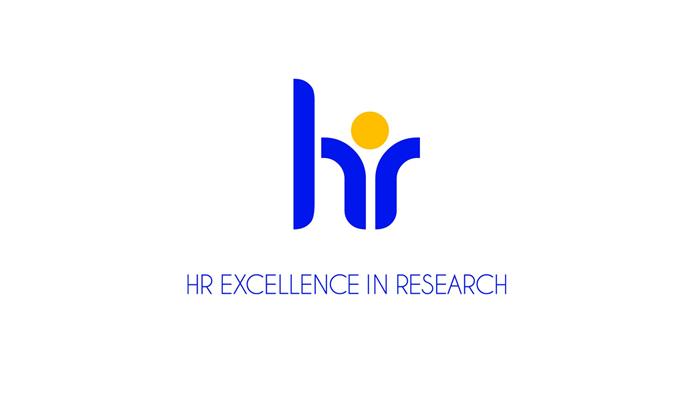
Human Resources Strategy for Researchers (HRS4R)
The Human Resources Strategy for Research (HRS4R) is a tool launched by the European Commission to support institutions and organizations that finance research in the application of the European Charter for Researchers and the Code of Conduct for the recruitment of researchers. The European Commission recognizes with the HRS4R Award the institutions that advance in the alignment of human resources policies with the 40 principles of the Charter and the Code, on the basis of a personalized HR strategy/action plan.
In order to comply with the principles of the Charter and the Code, the Barcelonaβeta Brain Research Center (BBRC) foundation carried out an extensive internal analysis that culminated in the development of the 2020-2024 Action Plan, approved in 2019. In October 2020, the BBRC received the HR Excellence in Research award - HRS4R.
Consult in more detail here the official documents relating to the European Charter for Researchers and the Code of Conduct.
General information
The aim of this Strategy is to attract and retain scientific talent in Europe, promote the mobility of researchers, ensure a good working environment and promote the development of their professional career. In addition, it also boosts employment and economic growth by establishing a competitive, transparent and open scientific labor market.
The BBRC thus undertakes, in accordance with its internal policies, to develop its human resources strategy, adhering to the recommendations and principles set out in the Charter and the Code, guaranteeing transparency, accessibility, equity and the search for excellence in the recruitment of researchers.
Who is the HRS4R Strategy aimed at?
The implementation of the HRS4R Seal is aimed at the entire BBRC team, both the research groups and the research coordination and support staff and research infrastructure. regardless of their contractual status and the point in their professional career. According to the European Commission, the research career has four stages or phases. For each, a profile has been established with a framework of professional skills. These profiles are described below:
- R1 NEW RESEARCHERS. Young researchers are those who are at the beginning of their research careers before they have obtained a PhD (or equivalent qualification). They carry out research activities under supervision.
- R2 RECOGNIZED RESEARCHERS. Recognized researchers are those who have already obtained their doctorate or who have an equivalent level of experience and skills.
- R3 CONSOLIDATED RESEARCHERS. Established researchers are those who, having already passed the doctorate or an equivalent level, can carry out research with a considerable degree of independence.
- R4 LEADING RESEARCHERS. Leading researchers are those who have a leadership role in their area of knowledge. It is common for them to be team leaders or laboratory leaders, although in some disciplines they are researchers without an assigned work team.
For more information on the profile of the researcher click on this link.
The European Commission recognizes with the HR Excellence in Research Award the institutions that advance in the alignment of human resources policies with the 40 principles of the Charter and the Code, on the basis of an action plan/strategy of personalized HR.
The Charter and the Code are recommendations from the Commission to the Member States.
The Charter is a set of general principles and requirements that define the responsibilities and rights of researchers and institutions that finance and manage research projects.
The Code emphasizes the importance of open, transparent and merit-based recruitment procedures.
In order to integrate the 40 principles contained in the Charter and the Code, the BBRC carried out an extensive internal analysis, developed the 2020-2024 Action Plan, and in September 2019, submitted the application awarding recognition.
The BBRC 2020-2024 Action Plan, approved by the Steering Committee in September 2019, foresees 21 actions grouped in the following categories:
- Working conditions and equality
- Career development plan
- Communication and strategic actions
- Selection and recruitment
- Resources and data
The analysis and the Action Plan were carried out by a team led by Human Resources together with the Office of Research Management, and formed by the HRS4R Working Group together with the HRS4R Supervisory Committee.
In November 2022, the BBRC presented to the European Commission the interim assessment report of the implementation process of the HRS4R's action plan. Drawing from this assessment and the work that is being carried out in regards to this action plan, three new actions have been included to the plan. These new additions contribute to the improvement of the working conditions, the development of the researchers' professional careers and the equality of opportunities in the promotion of women scientists.
To implement the HRS4R Seal Strategy, the following working group has been set up in charge of developing the 21 actions of the 2020-2024 Action Plan:
1. Members of the Working Group:
- Dr. Gonzalo Sánchez, of the researchers (R1 and R2).
- Dr. Marc Suárez i Dr. Juan Domingo Gispert, of the researchers (R3 and R4).
- Anna Soteras, from Core Facilities.
- Carme Deulofeu, from the Data Center.
2. Members of the Supervisory Committee:
- Glòria Oliver, BBRC Manager.
- Dr. Arcadi Navarro, Director of the BBRC.
3. Human Resources:
- Susana Palacios, Director of Human Resources.
4. Communication:
- Dr. Jaume Aguilar, Communication.
5. Research Office:
- Dra. Carolina Minguillón, Director of the Research Support Office and RMO Manager.
- Dr. Ojas Desphande, Scientific Policy Officer.
When the BBRC obtained the HRS4R Seal in October 2020, an Action Plan was drawn up for the implementation of the Strategy. The BBRC is currently in the implementation phase of the Strategy. In May 2022, a meeting was held prior to the interim evaluation with the current working groups.










